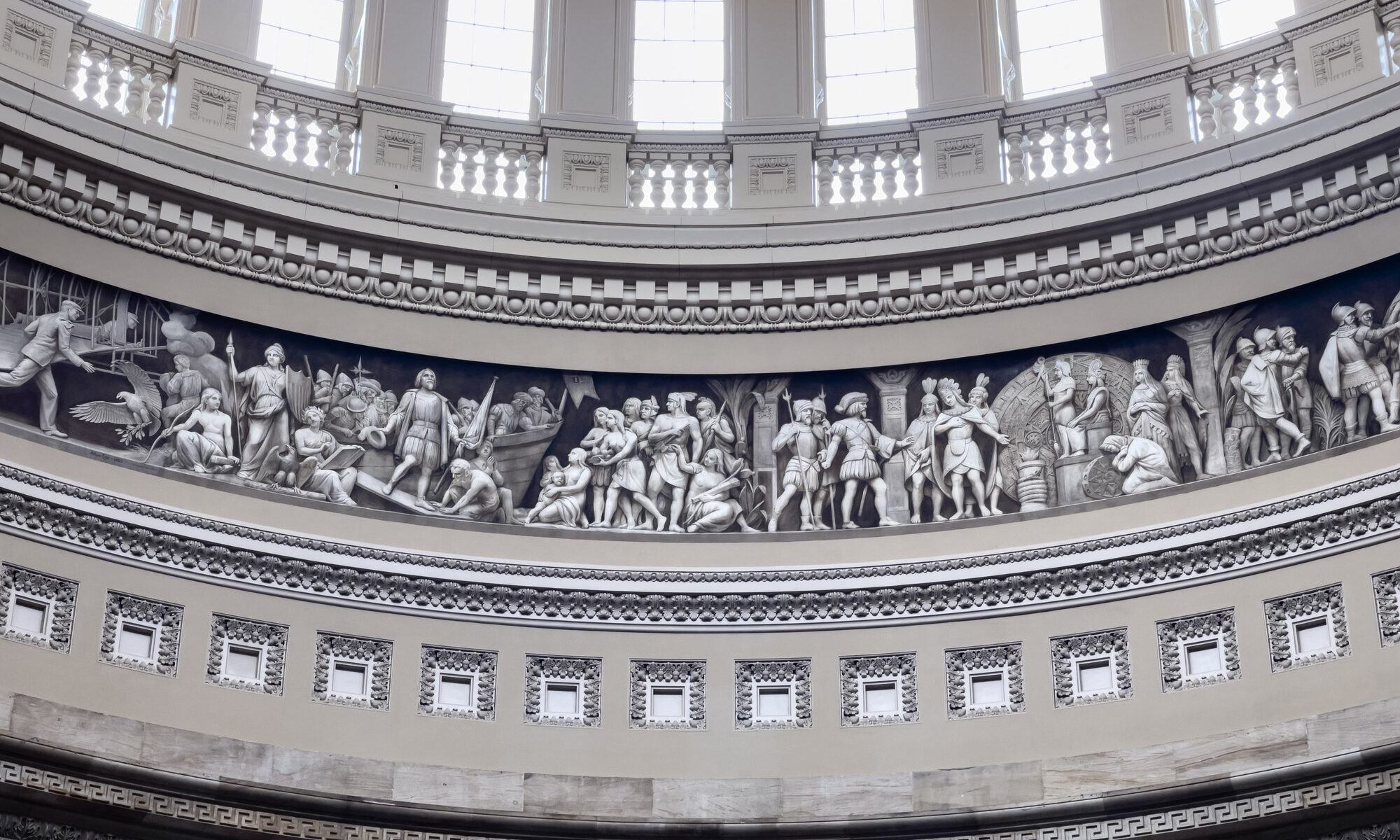The U.S. election is approaching its culmination. The winner, almost overnight, will become one of the most powerful people in the world. This ritual of empowerment repeats for senators, representatives, and even some judges. Let us then step back and reflect on what kind of person we should invest power in.
Ancient thinkers were intensely interested in questions of virtue and what virtues rulers should possess. The Athenian philosopher Plato famously (and perhaps a bit conveniently) argued for “Philosopher Kings” in his Republic — rule by lovers of wisdom. Wisdom for him concerns the ability to discern the best course of action and provide good counsel. Plato’s ideal ruler is connected with his vision of an ideal society, for a ruler should embody their role in the larger society and act for the good of that society rather than themselves.
The most feared ruler for Plato is the tyrant. More than simply a bad or authoritarian ruler, Plato’s tyrant is a kind of psychological monster. Achieving power through low cunning, flattery, and lies, they are ruled by their appetites for food, power, material wealth, and even violence, rather than by reason. The wants of a tyrant are endless — they can never have enough power or enough pleasure — and thus if not checked, they can consume all around them.
Beyond classical Greek and Roman philosophers, ancient Chinese philosophers such as Confucius and Mencius also considered the virtues of the ruler. Especially central for them was benevolence, caring for the well-being of others and acting to the benefit of the people.
Across both ancient Greek and Chinese philosophical traditions, learning and growth are pivotal. The ideal ruler is not only morally virtuous but actively strives to cultivate their virtues and improve themselves. This relates to humility. For example, as the Philosopher King loves truth and right action rather than simply appearing right, they listen to the wisdom of others and are willing to change their mind. In ancient traditions, the virtuous leader also often serves as a moral exemplar — someone worth emulating for how to live ethically and well. (Although, both Confucius and Plato emphasized that people should live well within their station, so following a moral exemplar entailed applying their lessons as appropriate to one’s circumstances.)
For hundreds of years after these philosophers of antiquity, there remains a strong connection between individual moral virtue and good leadership. Although, especially during medieval times, there is a darker undercurrent to this. By extolling the virtue of rulers, such philosophy could legitimize hereditary rulers, who ultimately possessed power through accident of birth. The link between individual morality and leadership is weakened by the Renaissance-era Italian philosopher Niccolò Machiavelli, from which we derive the adjective Machiavellian, meaning amoral and manipulative.
His famous text The Prince, written as advice for princes (especially a prince just assuming power), advocates scheming and ruthlessness to pursue and maintain political power. What precisely Machiavelli’s intent was remains unclear. Was it legitimate practical advice? Was he slyly ridiculing the ruling class? Regardless, it raises an important consideration about who we want to hold power.
Perhaps, rather than simply having someone virtuous and of excellent moral character, we want someone who will do what is needed even if they have to engage in a bit of skullduggery.
This echoes later political thinking such as Realpolitik, which emphasized practical considerations in political decision-making over ethical ones.
But morals cannot be escaped so easily. Rather, a good ruler, when necessary (and only when necessary!), may engage in unethical actions in service of the greater good. That these unscrupulous actions are done for a defensible higher reason is paramount. Someone who is simply okay with lying, cheating, and stealing for personal gain cannot be trusted to achieve worthwhile political ends. By contrast, someone who understands with due seriousness that personal morals may occasionally need to be compromised for the good of the people and the nation could be more worthy of power.
Put differently, a willingness to compromise ethics alone is clearly not laudatory. A willingness to occasionally be strategic or flexible to achieve larger goals of merit, perhaps is.
Impressionistically, philosophers have been progressively less attentive to the moral character of leadership since Machiavelli. There are several possibilities here. First, with the growth of new approaches to ethics such as utilitarianism (the greatest good for the greatest number), ethics becomes about something one does, rather than a virtue or character trait. Second, with the rise of modern democracies, political power is vindicated by popular mandate and no longer needs to use moral virtues as a justification for holding power. This shifts focus from individual character to political process. Third, especially when all candidates are of acceptable character or personal moral virtue is unclear, elections may center on political ideology and policy.
But none of these developments negate the foundational importance of character in considering who should be invested with power. Whatever your ethical system, you need to rely on a leader to have the disposition to actually try to achieve your ethically preferred results. And even if holding power is no longer legitimized through ethics and virtue, that does not make such characteristics irrelevant to whom we want to hold power.
The role of policy and political ideology merits more scrutiny. For it might be objected that rather than electing politicians based on what they are like, we should elect them for what they will do.
However, the predictability of policies relies on personal characteristics such as honesty. If someone cannot be trusted to be truthful about their intended policies, or to earnestly and effectively pursue them, then voting based on policy is pointless. Moreover, even if one can be trusted, the policy process is enormously complicated and uncertain, and depends on the machinery of governance working just so. At best, policy goals are more indicative of what someone stands for than what they will do. Most importantly, policy cannot always account for the unexpected. One significant function of a leader is to react to changes and emergent challenges. Will they act effectively in the interest of the people under conditions of uncertainty, or will they instead act ineffectively, or even exploit the crisis for personal gain? This is not a policy matter.
There is a related concern: modern governance is complicated, involving many people and underlying factors, rather than singular leaders. This does not negate the importance of worthiness to hold power, but rather contends that powerful people may be less individually powerful than we might think. Assuredly it is true that figures such as governors, senators, and presidents are not personally making every decision within their domain, but they still have an impressive capacity to make decisions if so inclined. Moreover, the relevance of other people cuts both ways. If we think someone is morally rotten and unworthy to hold power, why would we think they surround themselves with those worthy to hold power, or that the worthy to hold power would support them?
Elections are an investiture of power. Consider what traits make someone worthy (or unworthy) of power. There is a compelling case that foundational moral considerations, such as integrity, wisdom, and beneficence, should stand above policy and even political ideology. For if we cannot rely on a basic commitment to the well-being of the people, then all else is suspect.


